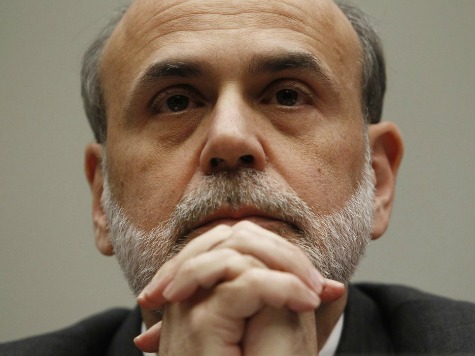
Earlier this week I published an interview on Zero Hedge with my friend and mentor David Kotok, founder of Cumberland Advisors, entitled “Bagehot & Deflation: Interview with David Kotok.” The discussion generated a large amount of comment in the financial community, particularly regarding whether Fed Chairman Janet Yellen and the other members of the Federal Open Market Committee understand that the zero rate policies of the past five years may be accelerating deflation rather than expanding the economy.
Fortunately the latest jobs numbers this week suggest that the US economy is improving, but not in the way that the FOMC and the majority of economists may have expected. Our friend Chris Street, who is a regular contributor to Breitbart, notes in an email exchange that the growth in the US economy is coming in production, not consumption, a shift that has to do with demographics and other structural changes. Says Street:
“I have been very positive on job growth. One of the challenges of the ‘newest economy’ is that the consumer is shrinking and production jobs are expanding rapidly. This is a problem for the Bureau of Labor Statistics, because they have focused the jobs collection data to emphasize consumption.”
For the past half century, the neo-Keynesian socialist tendency that dominates the US economic community has followed the notion that consumption rather than production is the key policy consideration. While socialists such as Paul Krugman believe that saving is a negative for the economy and that policy must focus on boosting consumption, in fact it is capital accumulation — not consumption — that drives wealth-creation. This is the basic problem with the current policy of the FOMC.
But the latest statistics on non-farm payroll suggests that the productive side of the US economy is actually growing very nicely. After several decades of boom and bust focused on sectors such as Wall Street and housing, perhaps the US economy is starting to move to a different formulation that emphasizes jobs and production rather than financial speculation.
As the Bureau of Labor Statistics reported: “The unemployment rate declined from 7.3 percent to 7.0 percent in November, and total nonfarm payroll employment rose by 203,000. Employment increased in transportation and warehousing, health care, and manufacturing.”
The BLS notes that among the unemployed, the number who reported being on temporary layoff decreased by 377,000. This largely reflects the return to work of federal employees who were furloughed in October due to the partial government shutdown.
Street argues that “U.S. growth is going to expand in 2014.” He argues that the only reason the Fed has not tapered yet is that there is a new Chairman coming in and the Fed did not want turmoil during the transition. This report should be death to the taper. Street adds that “the Fed is behind the curve and inflation is on the horizon.”
I wish this were the case, but I don’t think inflation is yet a broad problem. One of the things that most economists don’t appreciate is that you can have both inflation and deflation at the same time. The policies of the FOMC have been designed to prevent deflation in the financial sector, this at the expense of savers and the productive economy. Zero interest rates, ironically enough, are actually stifling a recovery in consumer demand. As David Kotok notes in the Zero Hedge interview:
“But the real question the FOMC needs to ask is, what are we going to do if inflation continues to fall? That is, if we find ourselves in a deflationary trap. Many commentators argue that we are in one or near one. I am worried about it.”
It is time for the Fed to rebalance monetary policy to emphasize production and real job growth, even if it means that financial institutions and investors feel some pain. For too long the FOMC has been trying to avoid financial deflation, while ignoring the impact of these policies on consumers and the real economy. Fortunately, the US economy remains dynamic and is creating real jobs that Americans badly need.
We need to make some changes in the way the Fed and our policy community look a growth in the months and years ahead. Most important, we must discard the neo-Keynesian notion that consumption is the key goal of economic policy. Instead we must re-embrace the classical concept that sustainable economic growth is made possible by forgoing current consumption and investing in people and capital to provide real jobs and a stable future for all of our people.

COMMENTS
Please let us know if you're having issues with commenting.